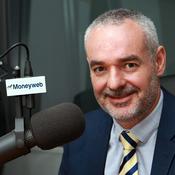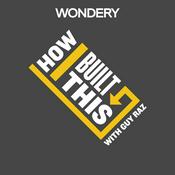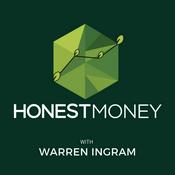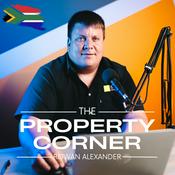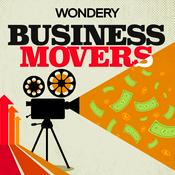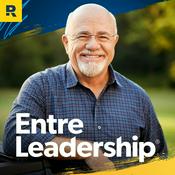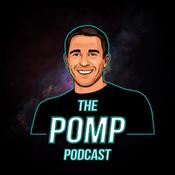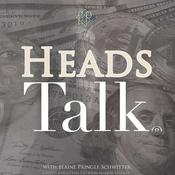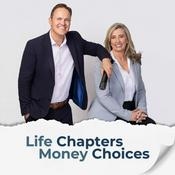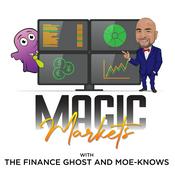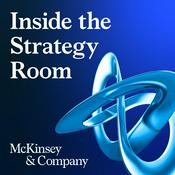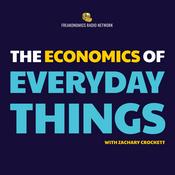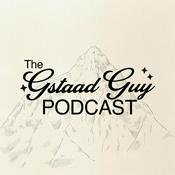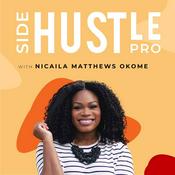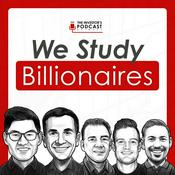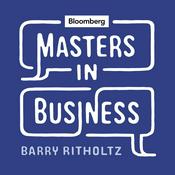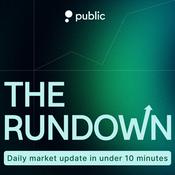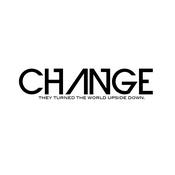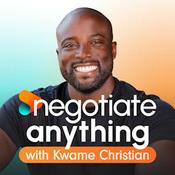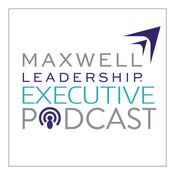Radical Candor: Communication at Work
Kim Scott, Jason Rosoff & Amy Sandler
Latest episode
206 episodes
- What do you do when the career path that once felt clear no longer is? What if that stuck, uneasy feeling in the middle of your career isn’t a failure, it’s information and an opportunity to rewrite your career story.
On this episode of The Radical Candor Podcast, Adrion Porter founder of Mid-Career Mastery, host of the podcast Gen X Amplified, and a LinkedIn top voice joins Kim and Jason to talk honestly about the “Messy Middle” and what to do when your old definitions of success no longer fit.
Together, they explore Adrion’s Mastery Map, a practical framework for getting unstuck by letting go of limiting beliefs, finding meaning, and making intentional choices even when the next step isn’t obvious. They also dig into navigating generational differences, the reality of different lived experiences and the divisive stories we tell ourselves and how to strengthen relationships across generations.
If you’re feeling stuck, uncertain about what’s next, or frustrated that doing your best work feels harder than it used to, this conversation offers grounded ways to move forward.
Get all of the show notes at RadicalCandor.com/podcast.
Episode Links:
Transcript
About Adrion Porter
Follow Adrion on LinkedIn
Learn More About Mid-Career Mastery
Listen to Adrion's Podcast, Gen X Amplified
Explore Adrion's Framework, The Mastery Map
Connect:
Website
Instagram
TikTok
LinkedIn
YouTube
Bluesky
Chapters:
(00:00) Introduction
(02:04) Adrion’s Origin StoryA layoff at 40 forces Adrion to rethink what’s next.
(06:51) Owning Your StoryKim & Adrion explore the narratives that had Kim stuck and how she rewrote those.
(09:02) Mindset & Limiting BeliefsWhy reframing how you think is the first step forward.
(11:48) The Mastery Map FrameworkThe pillars of the framework: mindset, meaning, and milestones.
(16:23) When You Feel TrappedNavigating change when money, family, or expectations limit options.
(17:48) The Framework in ActionAdrion tells the story of a specific application of the framework.
(20:39) Breakthrough Moments from the WorkWhat Adrion sees when people finally rewrite their story.
(23:04) From Messy Middle to Magical MiddleWhy mid-career can be a season of reinvention.
(26:42) Generations & Work StoriesHow different generations think about success and work.
(32:37) Wisdom, Age & Radical CandorWhat experience adds to communication and feedback.
(37:25) One Action to Take This WeekA practical step to start changing your story now.(38:21) Conclusion
Learn more about your ad choices. Visit megaphone.fm/adchoices From Optimism to Reckoning: Reflections on Silicon Valley with Steven Levy 7|43
2025/12/10 | 37 mins.The early internet was built on big hopes—access, openness, connection, and the belief that technology could make the world fairer. In this episode of The Radical Candor Podcast, Kim & Jason are in conversation with Steven Levy. His recent article, “I thought I knew Silicon Valley. I was wrong.”, becomes the lens through which they revisit tech’s early promise and its reality today.
They take an honest look at the optimism that shaped Silicon Valley’s early culture and how those ideals unraveled. Kim & Steven candidly share their unique perspective of how it feels to recognize the gap between what they believed and what actually happened as two people who had a front row seat.
If you’re looking for a thoughtful, grounded, and honest conversation about how tech’s story was written—and rewritten—in real time, and what today’s leaders can learn from examining both intention and impact, this episode offers clarity and perspective you can apply right now.
Get all of the show notes at RadicalCandor.com/podcast.
Episode Links:
"I Thought I Knew Silicon Valley, I was Wrong"
About Steven Levy
Steven Levy's Newsletter
Steven Levy's Books
"Virtual Love" by Kim Scott
"Enshittification" by Cory Doctorow
"The Age of Extraction" by Tim Wu
Connect:
Website
Instagram
TikTok
LinkedIn
YouTube
Bluesky
Chapters:
(00:00) Introduction
Kim, Jason, and Steven set the stage for a reflective look at Silicon Valley’s promise and reality.
(01:39) “I Thought I Knew Silicon Valley. I Was Wrong.”
Steven shares what led him to write the article and how his perspective shifted.
(03:38) From Idealism to Influence: When Tech’s Culture Shifted
Exploring the moment Silicon Valley’s playful, rebellious spirit hardened into something more powerful—and less accountable.
(06:30) Recalling the Internet We Hoped For
Revisiting the early optimism that shaped the web and the disillusionment that followed.
(12:27) The Claims of AI
Examining the bold promises tech leaders make about AI—and why skepticism matters.
(15:01) The Long Tail
Early optimism about the internet’s potential to democratize opportunity.
(16:56) Enshittification & The Age of Extraction
Cory Doctorow’s framework, antitrust debates, and how market consolidation reshaped the online ecosystem.
(20:05) Do a CEO’s Values Matter?
A look at how leaders like Mark Zuckerberg and Jeff Bezos have evolved—and what that means for their companies.
(24:37) What to Do When You Don’t Align With Your Company
Reflecting on how to stay true to your values when the culture around you shifts.
(29:36) Looking Back with Clearer Eyes
Kim reckons with past choices, blind spots, and what accountability looks like now.
(32:29) What Corrupted Silicon Valley
When too much money and power are concentrated in too few hands.
(33:56) Conclusion
Learn more about your ad choices. Visit megaphone.fm/adchoicesThe Fixable Framework : Solve Real Problems Quickly, Without Breaking Relationships with Frances Frei & Anne Morriss 7|42
2025/12/03 | 46 mins.How do you fix what’s not working without losing trust in the process? On this episode of The Radical Candor Podcast, Kim and Amy talk with beloved Harvard Business professor Frances Frei and her wife, CEO and bestselling author Anne Morriss, about why speed and care aren’t opposites — and how the right sequence of actions can help you go faster and strengthen relationships along the way.
Anne and Frances break down the five-day framework behind their book Move Fast and Fix Things, share real stories from coaching leaders and teams, and explain why so many of us misdiagnose the problems we’re trying to solve. They also walk through their “trust triangle” — authenticity, logic, and empathy — and reveal how understanding your own “wobbles” can help you communicate more clearly, lead with confidence, and create momentum without leaving people behind.
Get all of the show notes at RadicalCandor.com/podcast.
Episode Links:
Transcript
Get a Copy of "Move Fast and Fix Things"
Learn more about Anne & Frances
Listen to the Fixable podcast
Connect:
Website
Instagram
TikTok
LinkedIn
YouTube
Bluesky
Chapters:
(00:00) Introduction
(01:49) The Why & Origins of Move Fast and Fix Things
Frances and Anne explain how speed and care can work together.
(05:03) Monday: Start by Diagnosing the Right Problem
Why so many leaders fix the wrong thing—and how to avoid it.
(07:38) The Velvet Coffin
The Dangers of moving too slowly
(12:55) How to Solve the Right Problem
Approaches to use to get to the true problem
(15:49) Coaching Effectively
A real world story of getting to & solving the correct problem.
(19:09) The Trust Triangle: Logic, Empathy, Authenticity
How trust wobbles show up and what to do about them.
(30:55) Wednesday, Thursday, Friday
The remaining steps in the framework
(32:09) Dealing with Bosses
How to speak truth to power using the trust triangle and scripts
(38:30) Scooby Snacks
Examples of positive feedback
(42:44) Conclusion
Learn more about your ad choices. Visit megaphone.fm/adchoices- Difficult conversations don’t get easier by avoiding them—but they can get better when you prepare for them by getting curious. On this episode of The Radical Candor Podcast, Kim talks with Jeff Wetzler, author of ASK, about how staying curious helps us understand what others are really thinking and feeling.
Jeff walks us through the curiosity curve and explains how to move into greater curiosity to reduce misunderstandings, deepen trust, and make space for more honest, helpful conversations—at work and at home.
If you’ve ever faced a moment where you weren’t sure how to start, what to say, or how someone might react, this episode offers simple tools to help you connect with care and communicate with greater clarity.
Get all of the show notes at RadicalCandor.com
Episode Links:
Transcript
Jeff Wetzler
Book | Ask
Article | The Right Way To Prepare for High Stakes Conversations
Jason Rosoff : Get Curious Not Furious | YouTube
Connect:
Website
Instagram
TikTok
LinkedIn
YouTube
Bluesky
Chapters:
(00:00) Preparing for High Stakes Conversations
Jeff and Kim chat about why curiosity is essential for high stakes conversations
(03:17) The Curiosity Arc
Jeff introduces the sections of the Arc
(12:34) The Curiosity Check
Checking in to see where you are and where you want to be
(18:16) How to Move Along the Arc
Jeff explains head, heart, and hand-based ways to move along the Arc
(27:06) Letting Go
The importance of exhaling and letting go of the agenda in leadership
(31:34) Dialectical Behavioural Therapy
Kim & Jeff discuss the use of DBT
(32:43) Checking Someone Else’s Curiosity Level
Jeff explains how to help others get curious
(37:56) Curiosity and Candor
Kim explores why curiosity is essential to candor
(41:54) Conclusion
Learn more about your ad choices. Visit megaphone.fm/adchoices - When it comes to making a real difference, being remarkable isn’t about fame or titles—it’s about how you show up for others and yourself. Kim and Amy are joined by Guy Kawasaki—chief evangelist at Canva, bestselling author, and host of the Remarkable People podcast—to talk about what it really means to be remarkable. Guy shares stories from his book Think Remarkable and reflects on how growth, grit, and grace can help us create meaningful work and stronger relationships. From learning to embrace imposter syndrome, to saying “yes” when opportunity knocks, to finding joy in unexpected places (like surfing and parenting), Guy offers practical guidance for anyone who wants to make a difference. Tune in and discover how to bring more meaning—and more remarkable moments—into your life.
Get all of the show notes at RadicalCandor.com
Episode Links:
Transcript
Guy Kawasaki
Books | Guy Kawasaki
Guy Kawasaki's Remarkable People Podcast
Think Remarkable | Guy Kawasaki
Guy Kawasaki | Substack
Is There Better Than Better | Ellen Langer
Developing a Growth Mindset with Carol Dweck
Mindset | Carol Dweck
Kim Scott: The Power of Radical Respect and Candor | YouTube
The Problem With Passion 3 | 9 | Radical Candor
Beyond 'Sorry': How to Apologize and Mean It 6 | 22 | Radical Candor
Remarkably Candid: Insights from Guy Kawasaki 6 | 31
Connect:
Website
Instagram
TikTok
LinkedIn
YouTube
Bluesky
Chapters:
(00:00:00) Introduction
Amy and Kim introduce Guy Kawasaki, chief evangelist, author and host of the Remarkable People podcast.
(00:03:02) Power of Saying Yes
Guy discusses his “say yes" philosophy and its impact on his career.
(00:06:54) What It Means to Be Remarkable
What it means to be remarkable and how everyone can make a difference.
(00:09:26) Being Remarkable with Jane Goodall
The story of Jane Goodall writing his foreword and being on the podcast.
(00:16:04) Growth Mindset & The Right Environment
How the right environment is crucial for fostering a growth mindset.
(00:20:59) Passion, Interests & Ikigai
The value of exploration and interests over forced passion.
(00:24:05) Get Interested in Your People
Lessons from taking up kids’ interests and parallels to leadership.
(00:29:43) Dealing with Stereotypes
Personal experiences and learning to respond with humor or candor.
(00:37:40) Bridging Viewpoints
Understanding opposing perspectives by asking how instead of why.
(00:42:02) Grace, Grit, & Growth
Connecting with Stacey Abrams and her alignment with Guy’s book.
(00:47:07) Overcoming Imposter Syndrome
Advice on recognizing and overcoming imposter syndrome.
(00:53:45) Making Decisions Right
Focus on making decisions right, not making the right decisions.
(00:55:52) Lessons in Motivation
A story about mistaken identity and unexpected sources of motivation.
(01:00:40) Conclusion
Learn more about your ad choices. Visit megaphone.fm/adchoices
More Business podcasts
Trending Business podcasts
About Radical Candor: Communication at Work
Ready to love your job, crush your career goals, and become the kind of leader everyone actually wants to work with?
Welcome to the Radical Candor podcast, where you'll learn how to kick ass at work without losing your humanity. Host Amy Sandler and Radical Candor co-founders Kim Scott and Jason Rosoff to break down how you can Care Personally and Challenge Directly — the deceptively simple but powerful formula for building stronger teams, giving (and getting) better feedback, and leading with heart and clarity.
Each episode is packed with real talk, relatable stories, and actionable tips to help you do the best work of your life while building the best relationships of your career. Whether you’re a manager, a team player, or dreaming bigger for your future, this is the podcast that will change how you show up at work — and in life. P.S. Don’t forget to check out Kim Scott’s New York Times and Wall Street Journal bestseller, Radical Candor: Be a Kick-Ass Boss Without Losing Your Humanity! Want even more Radical Candor? Join the Radical Candor Community — free forever.
Podcast websiteListen to Radical Candor: Communication at Work, RSG Geldsake met Moneyweb and many other podcasts from around the world with the radio.net app
Get the free radio.net app
- Stations and podcasts to bookmark
- Stream via Wi-Fi or Bluetooth
- Supports Carplay & Android Auto
- Many other app features
Get the free radio.net app
- Stations and podcasts to bookmark
- Stream via Wi-Fi or Bluetooth
- Supports Carplay & Android Auto
- Many other app features

Radical Candor: Communication at Work
Scan code,
download the app,
start listening.
download the app,
start listening.

